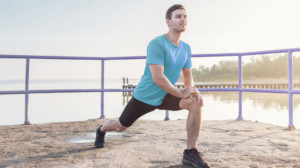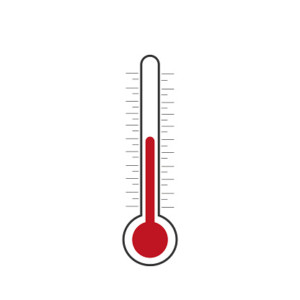Written by: Melissa Miller
 What’s going on?
What’s going on?
Muscle cramps happen when a muscle involuntarily contracts on its own. Usually, you feel a hard lump at the point of pain — that’s the contracted muscle.
Cramps usually occur for a reason. If you haven’t strained a muscle, you’re probably cramping because your muscle is fatigued or overused or your body is dehydrated.
Or maybe you’re not getting enough electrolytes, such as potassium or magnesium. These minerals help your muscles work more smoothly, and fluids help your body process the minerals.
Most cases of muscle cramps don’t indicate a worrisome underlying condition. People who are 65 and older are at greater risk for them. Cramps might be related to alcoholism, hypothyroidism, or diabetes.
Meanwhile there are several remedies you can try yourself!

Stretching
Relax the cramping muscle. Stop any activity that may have induced the cramp and lightly stretch the muscle, gently holding the stretch. You may even massage the muscle while you stretch or after you finish.
Consider applying a heating pad to the area, as described below, after stretching. If your calf muscle cramps in the middle of the night, stand up and slowly put weight on the affected leg to push the heel down and stretch out the muscle.
 Magnesium
Magnesium
If you regularly have leg cramps that aren’t related to a more serious condition, you might try adding more magnesium to your diet. Nuts and seeds are excellent sources of magnesium.
 Heat
Heat
Many personal trainers, coaches, and physical therapists also recommend using magnesium on the outside of your body in the form of Epsom salts.
Try applying the salts to a wet cloth and pressing it onto a cramped muscle, or add some to a hot bath for a soak. In fact, a hot soak provides relief for many, with or without Epsom salts.
If you have diabetes, a spinal cord injury or another condition that might prevent you from feeling heat, a heating pad isn’t a good option.
 Hydration
Hydration
Another possible way to stop leg cramps is to hydrate. It might take a little longer to ease your pain, but once you’ve had water or a sports drink like Gatorade, you could prevent another cramp.
 Get moving
Get moving
Walking around may help ease leg cramps by sending a signal to the muscle that it needs to relax after it contracts.
If all else fails, and you continue to have regular muscle cramps, consider getting regular massages to help the muscles relax.
